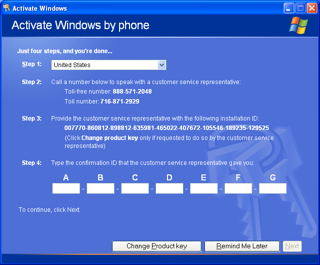I’ve been building websites since the mid-90s. I’m not sure exactly when I started but I do know it was before 1995. My first experience was using edit in DOS to create HTML files and then viewing them in Netscape 3 on Windows 3.1.
I still remember having problems the first time I uploaded my files to a real web server. I called support and they told me that my file extensions had to be html instead of htm. So after uploading the files to their Unix (Linux?) server with FTP, I had to rename them so they would have the correct extension. Those were the days.
Things have changed a lot since then. I’ve been through 2-3 other web hosts. At one point I was using Modwest. The service was good, but I wasn’t pleased with their support. One day I tried to bring up my site and instead got their default “Parked Domain” page. It turns out the credit card information they had on file had expired. Instead of sending my an e-mail to explain this, they just turned off my hosting. Nice.
About that same time, I heard lots of people talking about DreamHost. They offered lots more storage and bandwidth than Modwest for a comparable price. They had all of the features I needed. For $19.95 a month I could have unlimited domains with PHP, Perl, MySQL, SSH, etc. It wasn’t long before I moved my domains over to DreamHost.
At first, everything was great. It seemed like everybody was talking about DreamHost, and everybody was happy. As time went on, I started noticing things slowing down. It wasn’t every day, but sometimes things just didn’t respond as fast as they once did. More time passed, and I started noticing that my site occasionally timed out completely.
A few months ago, DreamHost announced that they were now the 16th largest web host in the world. They are currently hosting over 600,000 domains. That probably explains why my little personal web site is so slow sometimes. DreamHost offers shared hosting which means all of my web sites are on the same server as lots of other web sites. There’s no way (that I know of) to tell how many other sites are on the server I’m on, but I’ll bet it’s a lot more today than it was a few years ago.
Even with the slowdowns it hasn’t really been worth it for me to move to another host, until this morning. A little before eight I received an e-mail from DreamHost billing. This is normal, I get one of these every month for $19.95 plus $9.95 for any domain names that need to be renewed that month.
Unfortunately, today’s bill was for $438.90 and it has already been charged to my credit card. Instead of charging me for February, they charged me for the rest of the year. Not only that, they charged me twice for each of the 11 months. Needless to say, they got a prompt reply. I didn’t panic like some people, but I was not happy.
DreamHost has updated their status blog with a post about the billing issues. So far their are 608 comments on that post. I obviously haven’t read them all, but here’s one of my favorites:
LOL! nice going DH
its cheap for a reason!
My thoughts exactly.
It’s funny, I was thinking about moving the automatic billing from a credit card to our debit card just the other day, but I hesitated for some reason. Scrolling though the other comments on that blog post, I see several people complaining about checks bouncing and not having access to cash. I guess there’s a reason I didn’t make that switch. Gut feelings are almost always right.
